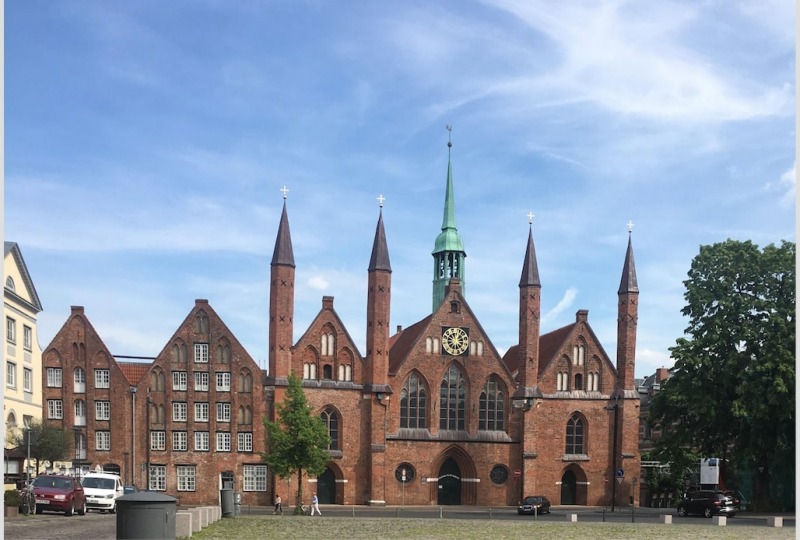Graduate Student Research Diary: Anna Grzybowski in a medieval city

MA candidate Anna Grzybowski spent two months in Lübeck thanks to grants from DAAD and from Scholarship in the Arts.
She describes her experience:
“I travelled to Lübeck, Germany, to examine original charters and architectural features from the early fourteenth century. I was particularly interested in the Great European Famine of 1315-1322 and its effects on Lübeck during that time. The charters that I consulted were from all over the Baltic Sea region. My trip was greatly enhanced by my work with the Forschungstelle für die Geschichte der Hanse und des Ostseeraums (Research Centre for Hanse and Baltic History). I was able to attend seminars and colloquiums there and was put in touch with many scholars, who are leading experts in this area. I was also able to work closely with the Lübeck city archive, where priceless charters are located. With the generous contribution from the German Academic Exchange Service (DAAD) and from the Scholarship in the Arts research funding, I was able to stay in Lübeck for two months and travel to a number of surrounding areas. In this way, it was possible not only to get a real feel for the city, but also visit many sites that were mentioned in the charters. This experience has brought my research to life and given me insights into my work that I could not have gotten anywhere else.
Not only was the trip important for my understanding of the context of my project, but it was also vital to my understanding of the key documents on which this research is built. Many of the charters that I studied were transcribed, but often-repeated phrases were left out of these transcriptions. This was especially important as my project was based on a close reading of the text. Furthermore, the physical aspects of the charter—its script, decorations or lack thereof and use of space—helped inform my understanding of the purpose and meaning of the charters. Looking at the original document was so important for my study of charters that my project would not have been successful without it.
It is also the case that my time in Germany allowed me to improve my German competency and to experience life in Germany. I got to enjoy the bourgeois Hanseatic culture made famous in Thomas Mann’s Buddenbrooks. I was able to frequently visit the seven world-famous churches of the island-city, which are beautiful examples of German Brick Gothic style. I visited the Holy Ghost Hospital, which is an integral part of my project and one of the oldest European social institutions. This experience has only cultivated my love for all things medieval further, and I am enjoying taking this new knowledge and applying what I have learned to my research project.”
Anna Grzybowski, MA candidate, Department of History